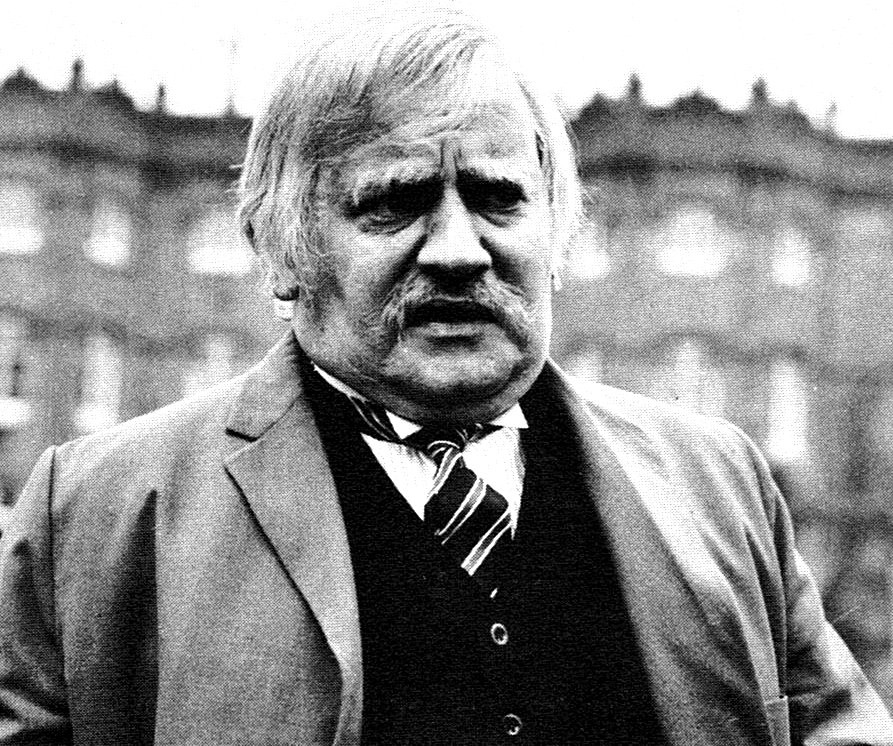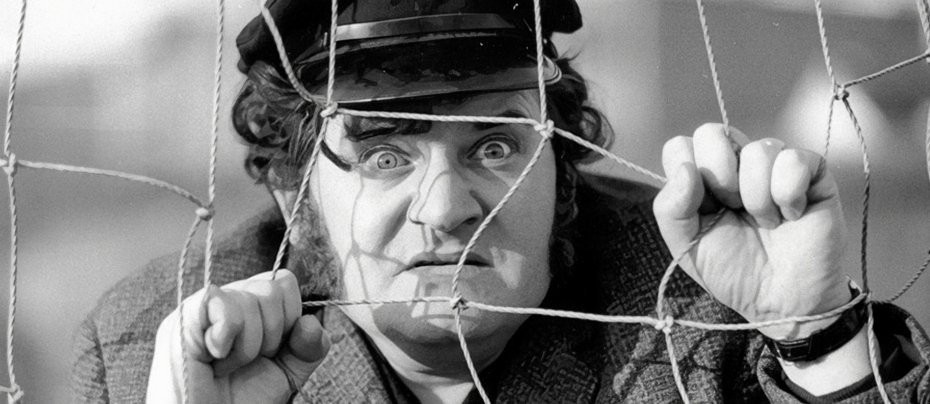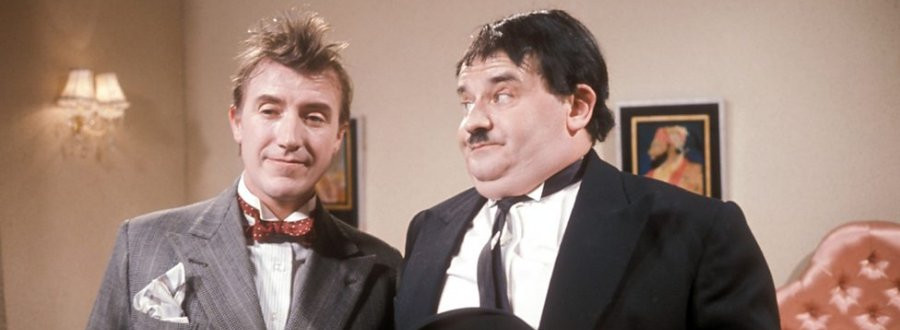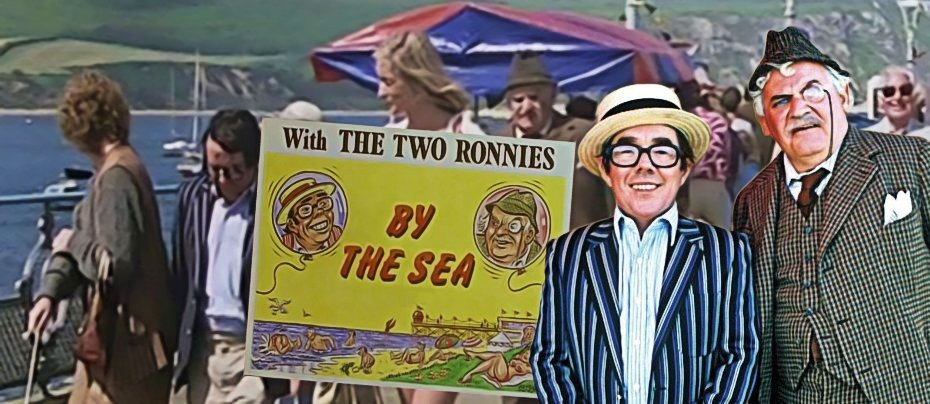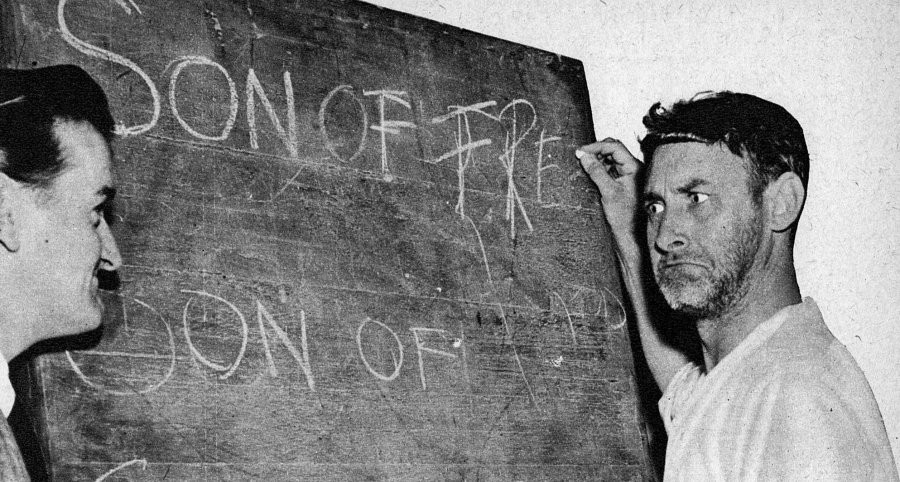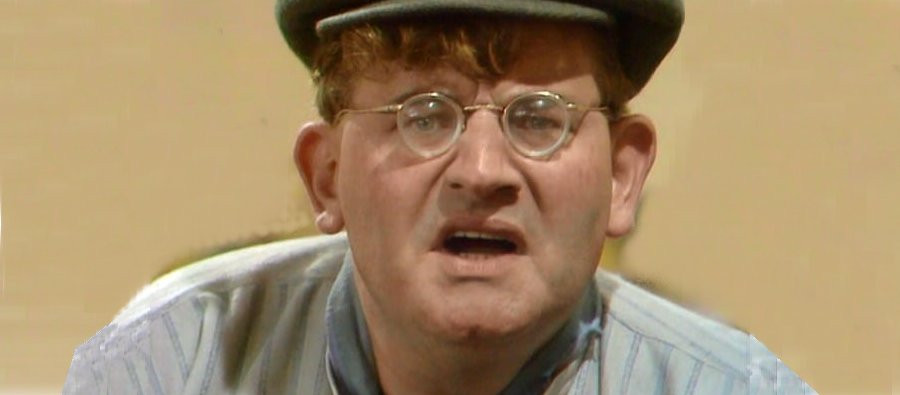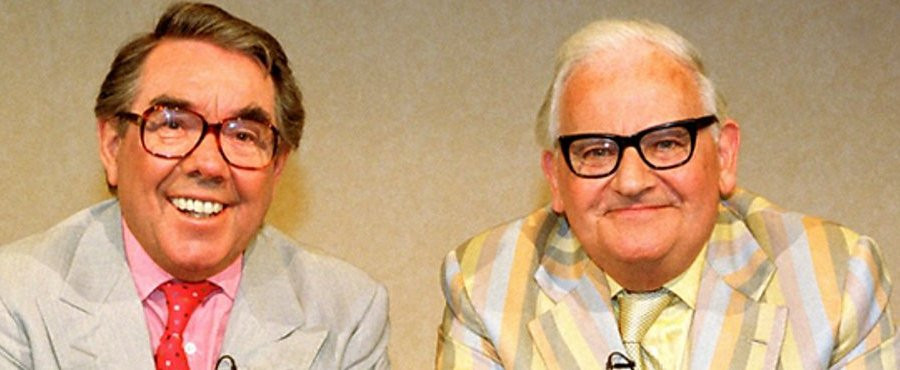
The Two Ronnies
1971 - United KingdomQuite possibly the only legitimate pretenders to the crown of the nation's best loved comedy double act held for so long by the legendary and incomparable Morecambe and Wise, was the amazingly successful pairing of polished comedy veterans Messer's Barker and Corbett, aka as 'The Two Ronnies.'
The duo first worked together in the mid sixties on the classic, The Frost Report, where their participation in short sketches alongside the likes of John Cleese became their first taste of joint success. But it wasn't until 1971, when Barker and Corbett signed up with the BBC to record a series of shows called The Two Ronnies that their fifteen year long, phenomenally successful partnership came into full comedy bloom and cemented their cherished place within the affections of the viewing public.

Amongst the vast catalogue of brilliantly conceived sketches and musical numbers, an enduring highlight was Ronnie Barker's solo spot, which featured spoonerisms, the minister for mispronunciation and various appeals in which the ever versatile Mr. B displayed his amazing gift of characterisation. Ronnie Corbett's equally accomplished solo spot was the sit down monologue, which showcased the diminutive Scot's near genius at going off on interminably convoluted tangents before finally delivering the gag's long awaited punchline. The majority of the humour on offer was along the lines of the smutty postcard variety so beloved by the British, and Barker himself, who was a keen collector of such items. But great care was taken never to cross the fine line into the overtly smutty.
The real centrepiece of each show was the wonderfully produced and lovingly written spoof serials, which would be in the form of a continuing thread throughout any given season. Notable amongst them was the beautifully filmed, and very funny, Jack The Ripper pastiche, 'The Phantom Raspberry Blower of Old London Town,' which was written with all his usual trademark inspired insanity by Spike Milligan, whilst 'The Worm That Turned' told the story of a Britain where women ruled the country and ran a militaristic police force, and men were made to stay at home, house-keep and wear women's clothing. Another pair of expertly realised Barker and Corbett characters were Piggy Malone and Charlie (one time hit man for the Brownies), Farley. Musical guests ranged from middle-of-the-road groups such as The Nolan Sisters to pop icons of the day like Elton John.
Amongst the series pantheon of scriptwriters were the cream of British comedy talent, including David Knobbs, David Renwick, John Cleese, Graham Chapman, Michael Palin, Terry Jones and the young (destined for a prolific television career), John Sullivan. However, one major contributor to the show was the shadowy figure of one Gerald Wiley, a writer unknown to any of the production staff. After years of receiving high quality material from the mysterious Wiley, a meeting was set up with him and the rest of the team (including Ronnie Corbett) in a restaurant. It was only here that his true identity was revealed: Gerald Wiley was Ronnie Barker! Always blessed with a prolific amount of creative energy, Ronnie Barker has estimated that he wrote around 75 per cent of the material for each weekly show, as well as taking an active part in the editing process.
The series finally came to an end while still very much at the peak of its popularity (it was very much considered to be one of the BBC's flagship show's enjoying an average audience of 15 million viewers) in 1986, when Ronnie Barker finally decided to retire because he was finding it evermore difficult to come up with fresh, new, funny material, added to which he considered that the standard from the series other writers was no longer meeting the exacting standards for quality, which had helped make it a success in the beginning. Another point of interest was the fact that both performers had managed to sustain successful solo careers both during and after their partnership, a rare and enviable feat in the show business world.
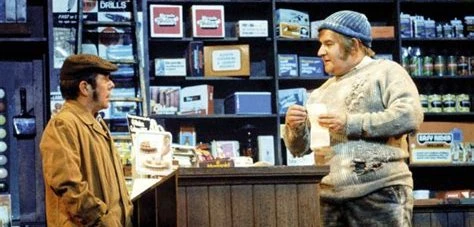
A full scale BBC retrospective was mounted in 1999, in which Ronnie Barker agreed, much to the delight of millions, to come out of retirement (albeit temporarily) to record some new "News" items which had famously opened and closed each show. Barker explained that the genesis of these items came about because initially they couldn't think of anything else, and didn't want to start and end each show with a 'Morecambe and Wise' style routine. During the Two Ronnies Night viewers were asked to vote for their favourite sketch and the one they ultimately opted for was the hilarious one set in a hardware shop, which opens with Barker asking for "Four candles". Corbett, as the shop assistant, puts four candles on the counter. "No," says Barker "Four candles!" The bemused Corbett looks at him and tells him that's what he's got. "No," Insists Barker, "four candles...'andles for forks."

Inventive, inspired, expertly delivered comedy of the very highest standard ensured that The Two Ronnies is a shining example of entertainment at its most polished. It also more than ably illustrates the reason these two performers hold a special place in the exclusive hall of genuine comedy greats.
Seen this show? How do you rate it?
Seen this show? How do you rate it?
Published on February 9th, 2019. Written by Laurence Marcus & Peter Henshuls "And in a packed programme tonight..." (2001 & 2007) for Television Heaven.


